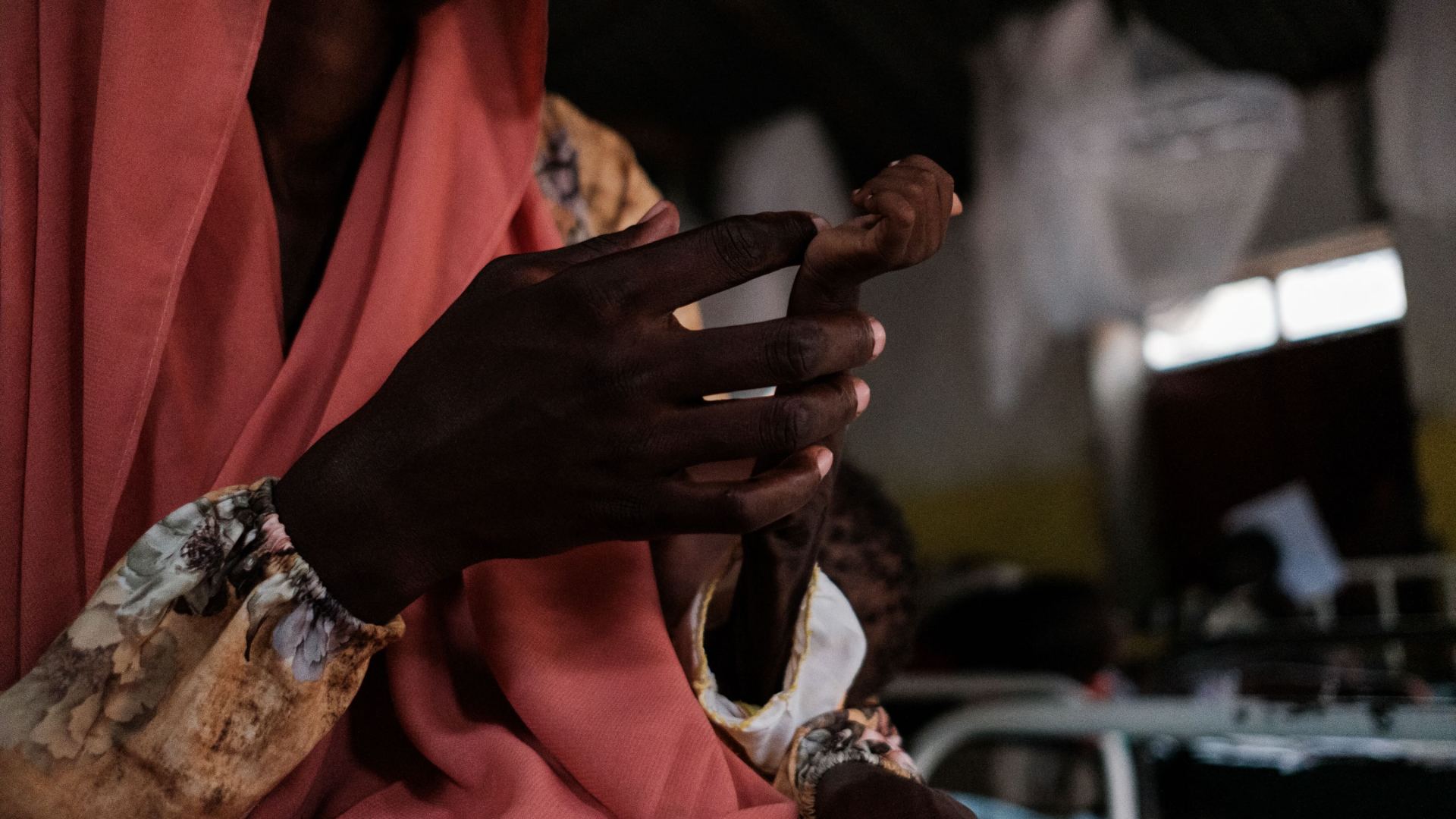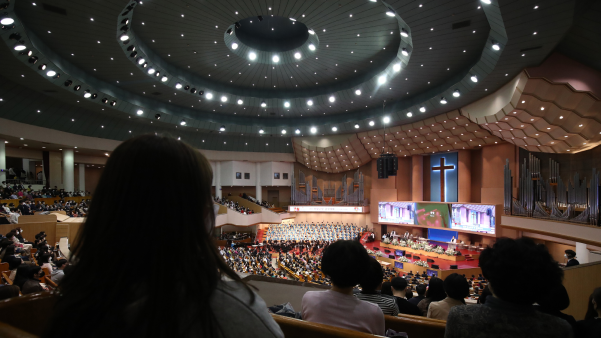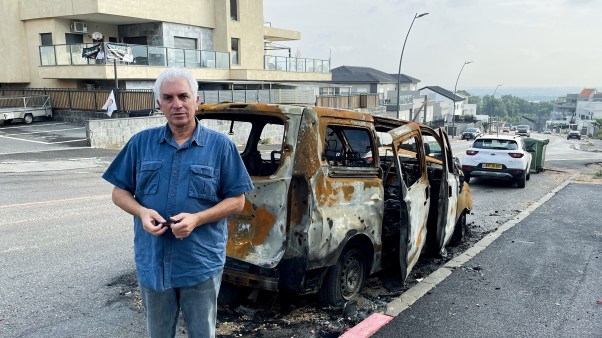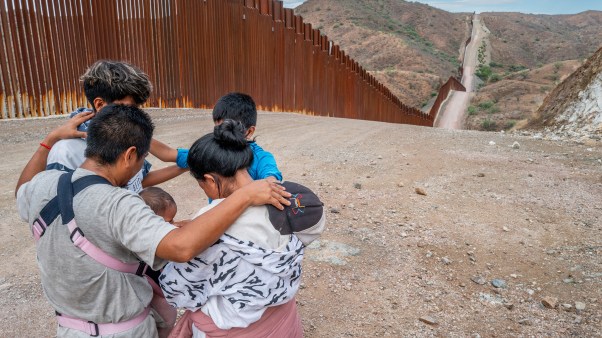After years as a missionary and then a pastor, Mark Moore started a peanut butter factory in Fitzgerald, a small city in Georgia.
His nonprofit Mana Nutrition makes ready-to-use therapeutic food (RUTF), a peanut butter–based paste for severely malnourished children around the world. A formulation of peanuts, milk, vitamins, and powdered sugar, it is shelf-stable and comes in a hand-size packet that is easy to distribute.
Malnutrition causes almost half of preventable deaths for children under five. On RUTF, 90 percent of malnourished children recover within weeks.
USAID had contracts with Mana to produce thousands of metric tons of the paste for food crises in places like South Sudan and the Democratic Republic of the Congo. After President Donald Trump came into office, Mana’s contract halted under the 90-day review of all foreign aid, then restarted as exempted “lifesaving aid.”
Then it was fully terminated.
Then restored again.
The dramatic dismantling of US humanitarian aid over the past several weeks has sent organizations on a life-and-death roller coaster. Most did not have their funding restored.
For Christian nonprofits doing lifesaving work, the decisions around what aid programs remain and what programs were cut feel inexplicable.
Nonprofits have had to fire and rehire staff, plead for help from donors for emergency funding, and try to retain trust with local partners who feel betrayed.
“There was no need for the dynamite fishing that we’ve seen over the last six weeks,” said Randy Tift, a USAID veteran who led a series of internal reforms of the agency in the first Trump administration. “This was not well understood by the new team.”
At a recent prayer vigil on Capitol Hill about the aid cuts, Tift—now a senior adviser at the Accord Network, a coalition of Christian relief and development organizations—said bad actors in USAID could have “been easily spearfished” instead.
He lamented “the destruction of effective, irreplaceable American development collaboration, for example, infectious disease monitoring … famine early-warning systems … programs championed by faith leaders that we support to change practices like child forced labor and other kinds of everyday violence against the poor that we know by evidence can be solved.”
After the freeze and review of almost all USAID contracts, Secretary of State Marco Rubio recently announced the termination of about 80 percent of those contracts, including those for many faith-based groups providing lifesaving aid.
Late this week, faith-based organizations were still receiving notices of termination for their contracts.
“It’s hard to quantify the impact of lost trust with local partners,” said Michael Cerna, CEO of the Accord Network.
A handful of organizations have seen their contracts restored, but even in those cases, the sudden disruption has blown aid infrastructure apart.
Some data systems tracking health aren’t funded anymore, for example. HIV drugs might be funded, but the staff with specialized training to treat HIV complications may be gone. An untrained staff member could do a simple refill of an antiretroviral (ARV) medication but wouldn’t know what to do for an HIV patient coming in with a liver problem.
This week the Trump administration sent a 281-page spreadsheet to Congress detailing active and terminated USAID contracts, as first reported by The New York Times. Overall, 5,341 USAID contracts have been canceled and 898 retained, according to the agency’s memo to Congress, which CT reviewed.
In late February, Mana’s contracts were among the thousands at USAID that received termination notices. That meant Mana couldn’t even deliver the food it had already produced. (Mana is not officially faith based, but Moore describes it as “faith laced,” with ties to the Church of Christ.)
Media attention on Mana’s contract termination led to podcaster Jon Favreau posting on X that Department of Government Efficiency head Elon Musk was starving children. Musk responded by calling Favreau a name and then said he would look into it.
Shortly after, Mana learned its contracts had been restored, at least through the next few months.
“I felt a sense of survivor’s guilt for us,” Moore said. “The earthquake hit, and we are still standing.”
But even for an organization that got its contract back, turning everything off and on was not easy. Mana works at a large scale, signing contracts with peanut growers and milk suppliers months in advance for shipments to Congo this summer.
The nonprofit is trying to fulfill these renewed contracts while awaiting $20 million from the federal government for work already completed, going back to December.
Though its contract has been restored, payments remain frozen. The skeletal USAID staff that remains is overloaded managing projects, Moore said.
Mana spends $200,000 a day on ingredients for impending shipments, Moore said. He knows he has the less-than-ideal option of getting a line of credit from the bank against the federal contract. The nonprofit’s current contracts run through May.
If the malnutrition contracts go away again, Moore said, “we have a big, amazing facility to make peanut butter—we can pivot and make peanut butter for pets or something not as noble.”
Meanwhile, he’s not sure how all the RUTF (popularly known as plumpy’nut) it’s making will be shipped with supply chain holdups.
He’s had calls with World Vision and Samaritan’s Purse, trying to find ways to stabilize the supply chains in countries where Mana is working.
Other cuts will disrupt Mana’s work in the months ahead. Clinics where doctors would prescribe Mana-produced RUTF are shuttered. USAID funded a famine early-warning system around the world so groups would know where to direct the shipments; it’s unclear if that remains.
Talking about it, Moore couldn’t help but leave his peanut-butter-factory persona behind and resume his pastor’s role.
“The disciples said to Jesus, ‘Send these people away, Lord. They’re hungry—let them buy something in the marketplace,’” he said. “Jesus says, ‘We should feed them.’ … We believe in the marketplace more than our faith, I think.”
Based on CT’s review of the spreadsheet USAID sent to Congress, the many faith-based organizations that saw contracts terminated included groups providing HIV/AIDS treatment through the President’s Emergency Plan for AIDS Relief (PEPFAR), tuberculosis treatment, malaria treatment, and other general health care.
All of USAID’s grants for American Schools and Hospitals Abroad were canceled, some of which went to Christian hospitals like Cure International.
Tuberculosis funding was cut by 56 percent, and malaria by 36 percent, according to analysis by the Center for Global Development (CGD). Sectors like family planning, higher education, infrastructure, water supply and sanitation, and maternal and child health were almost entirely zeroed out, according to CGD’s analysis.
Among the contracts terminated was a large tranche of funding for the Uganda Protestant Medical Bureau’s HIV care and treatment. One African source told CT some mission clinics in Uganda have closed as a result.
Ukraine, Ethiopia, and the Democratic Republic of the Congo experienced the largest cuts in aid, according to CGD. Liberia had the largest cut as a percentage of its economy.
Experts CT interviewed could not discern a rationale for which programs the administration cut or preserved.
In Nigeria, a large tuberculosis treatment program was saved. In the Philippines, where tuberculosis is a serious problem, its treatment program was zeroed out.
The administration sent a memo in late February asking for explanation from grant recipients about how their US-funded programs meet three criteria: making America “safer, stronger, and more prosperous.” The memo says the goal is to enhance “sovereignty over globalism” and prevent “a global welfare mentality.”
Grant recipients have to affirm certain protocols, like that they are following the Mexico City Policy, that they have anti-trafficking policies, and that there are no “DEI elements” or “environmental justice” elements in a project. They also must state whether their projects include plans to transition away from foreign assistance in the next five years.
Organizations didn’t know if their answers to those questions played any role in grants being renewed.
It remains an open legal question whether the executive branch can unilaterally terminate funds, but a Republican-controlled Congress has so far not challenged Trump’s decisions to stop funds. The issue of the Trump administration’s shuttering of USAID is still working its way through the courts.
A smaller group of faith-based organizations had USAID funding restored. The roller coaster has been exhausting even for them.
Partners in Hope, a vital Christian medical center that reports it oversees HIV treatment for 207,000 patients in Malawi, lost its PEPFAR funding in the administration’s across-the-board pause in USAID funding when Trump took office.
A month ago, Partners in Hope received notice that after the review, its contracts had been terminated. The hospital had to lay off 1,100 members of its staff, a devastating blow.
African Mission Healthcare, a foundation with deep ties to the hospital, stepped in with cash support to keep the main hospital’s HIV clinic for 5,700 patients open.
Then, this week, Partners in Hope’s contracts for care and treatment of HIV patients were restored. The medical center will try to start the complicated process of rehiring staff when the funding starts again.
“We’re gratified by the fact that the US government sees the value of Partners in Hope and this type of care. It has been a roller coaster up and down, and now we hope the funds flow quickly,” said Jon Fielder, a longtime HIV doctor who leads African Mission Healthcare (AMH). “We hope all these care and treatment grants get activated. AMH had to step in to keep the clinic open, but other clinics did not have partners.”
Other organization staff noted to CT that firing and rehiring staff is complicated country to country—navigating taxes, severance, and local laws. In some countries the laws require a full year of severance, meaning the nonprofit might have to pay one salary and hire another worker to do the same job if its contract is restored.
PIM, a Christian maternity clinic in Côte d’Ivoire treating thousands of mothers and children with HIV, is another organization that received a full termination notice in late February.
Kip Lines, head of Christian Ministry Fellowship (CMF) International, the US missions organization that supports PIM, said his heart sank when he saw the termination. The contract was supposed to go through September 2028.
Like many other groups, after the pause and then termination, the Ivoirian organization was scrambling to find ARVs to continue HIV treatment. CMF International started fundraising from US donors for ARVs but didn’t know how long emergency donations would last.
Then this week, PIM’s PEPFAR funding was restored through September of this year. Lines thanked individuals and churches in a Facebook post for helping them continue care for the two months when funding was cut off.
“Please continue to pray for those in our government who are evaluating and making decisions about which programs are being funded,” Lines wrote on Facebook. “I know that many programs will not receive this good news that we have received.”
Two months into the aid freeze, with ongoing uncertainty, clinicians told CT they see this month as critical for global health nonprofits whose funding has been cut. Staffs are gone, supplies are dwindling, and money from emergency fundraising appeals might be fading.
Mana, meanwhile, isn’t sure when it will be paid and whether its RUTF will reach the intended mouths. But it now has peanut butter paste for malnourished children heading to South Sudan.
“We’re determined to weather the storm,” said Moore. “But it is a big storm.”
Additional reporting from Harvest Prude.













